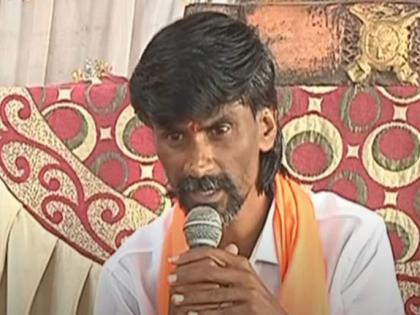Deadline over, Activist Manoj Jarange launches indefinite fast over Maratha quota demand
By Lokmat English Desk | Updated: October 25, 2023 13:21 IST2023-10-25T13:21:19+5:302023-10-25T13:21:40+5:30
In order to advocate for the demand for a quota to the community, activist Manoj Jarange on Wednesday began ...

Deadline over, Activist Manoj Jarange launches indefinite fast over Maratha quota demand
In order to advocate for the demand for a quota to the community, activist Manoj Jarange on Wednesday began his indefinite fast as the 40-day deadline he gave the Maharashtra government to adopt Maratha reservation came to an end.
Forty-year-old Jarange, who has brought back the Maratha quota issue to the centre stage in the state, began his stir at his native Antarwali Sarati village in Jalna district. Speaking to reporters before launching the fast, he said, Maharashtra Chief Minister (Eknath Shinde) had asked me to wait for 40 days to make a decision on the Maratha reservation. But he did not do it, therefore I have decided to start fast unto death at my village.
Jarange had observed a hunger strike in this village in September this year demanding that the Maratha community be granted reservation in government jobs and education under the Other Backward Classes (OBC) category. He had withdrawn the protest on September 14, setting a 40-day deadline till October 24 to the government for the grant of quota.
I was told that the police cases filed against the Maratha community protesters across the state would be withdrawn within two days. Forty-one days have elapsed since this assurance was given, but not a single case has been withdrawn. It means the state is deliberately misleading the Maratha community.
Mali community is recognised as OBC because its primary work was considered to be agriculture. The same is applicable to the Maratha community from Vidarbha, who were recognised as Kunbis because of their agriculture activities and now they enjoy the benefits of reservation. So if this can happen then why are we not eligible for Kunbi certificates despite having agriculture as our primary business? Jarange asked.
Open in app